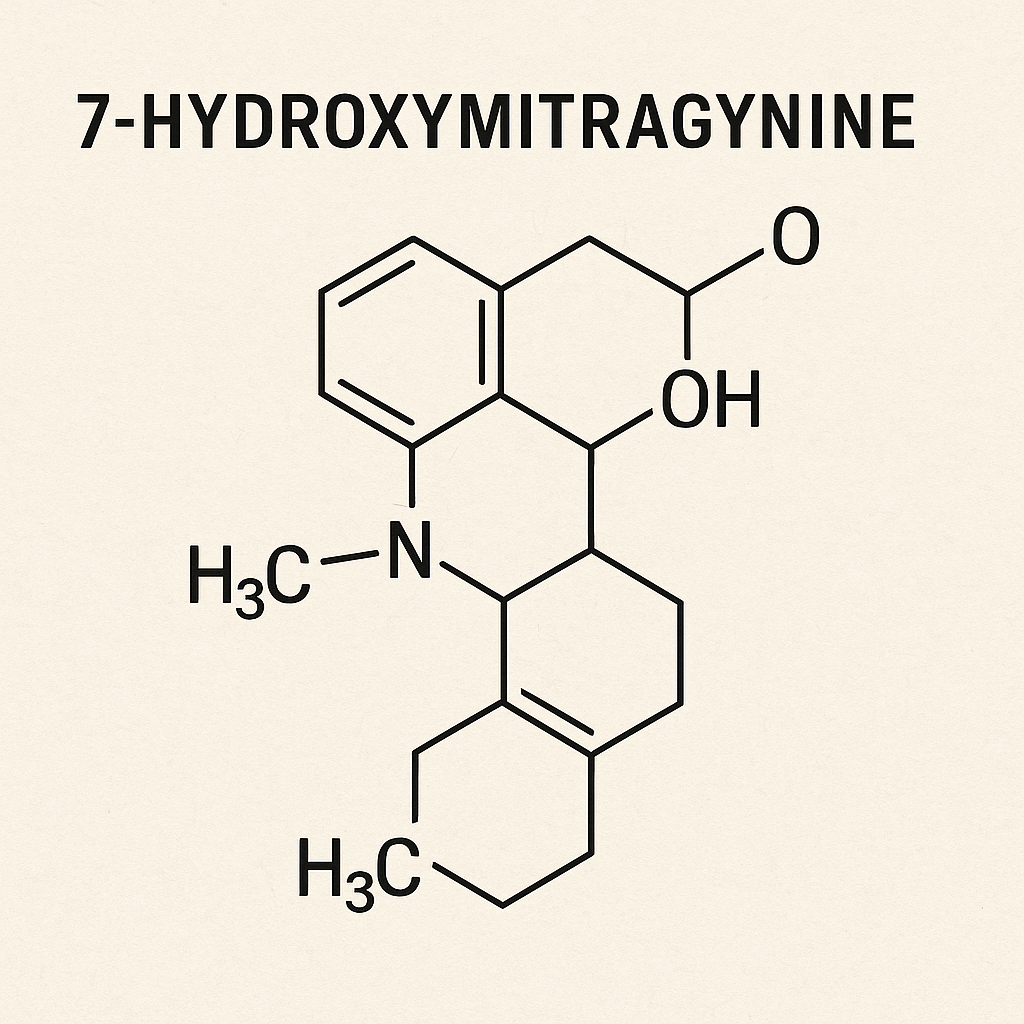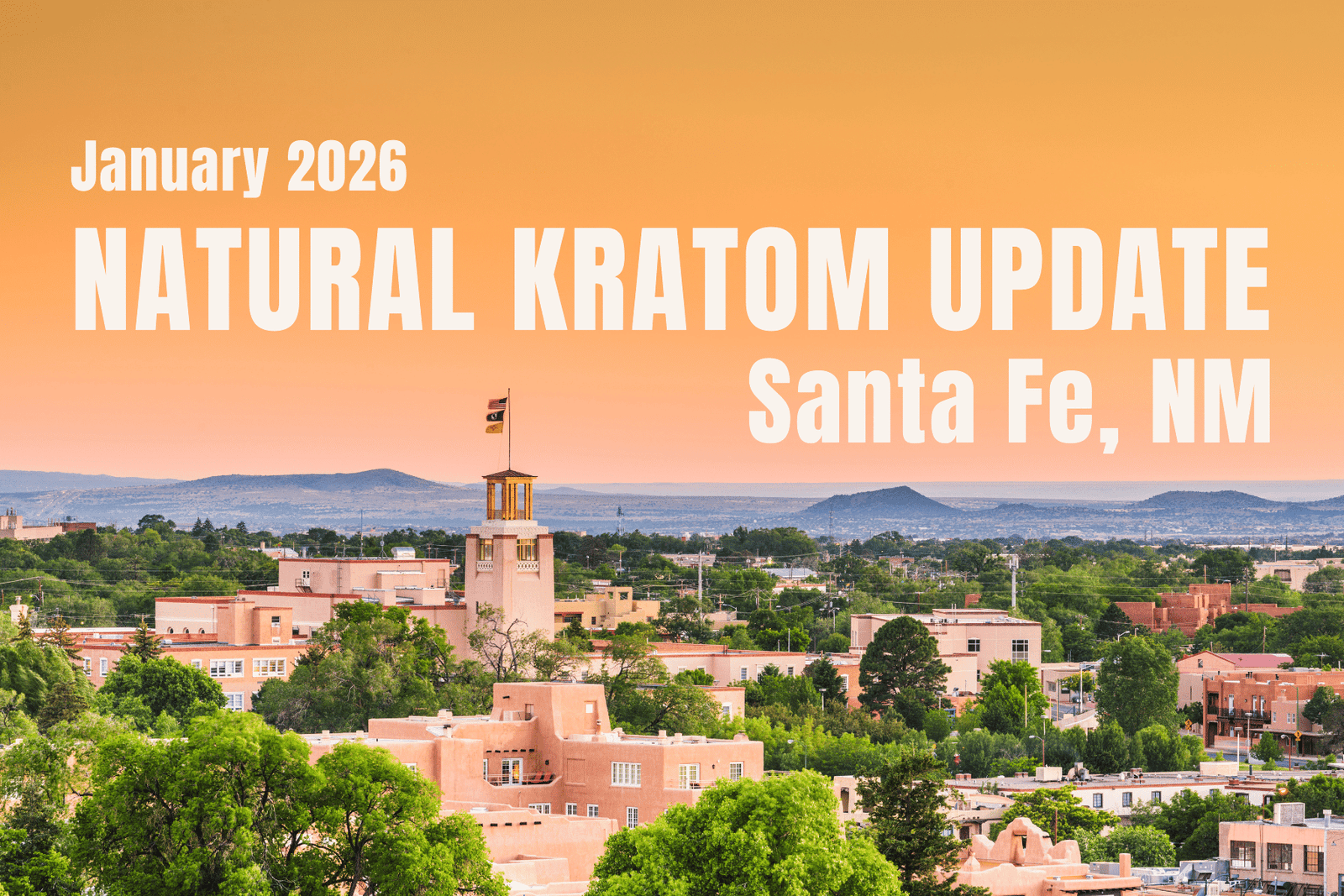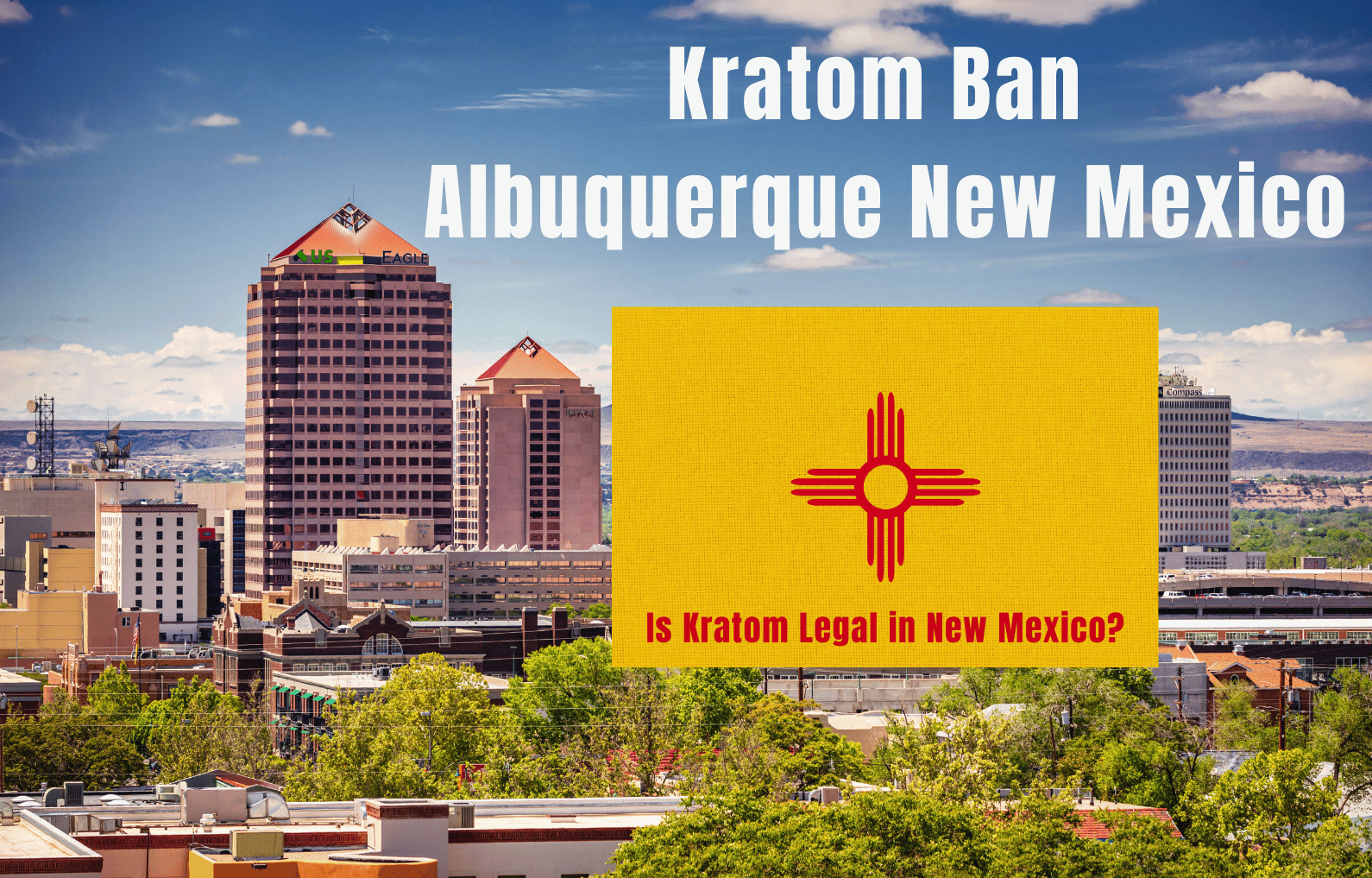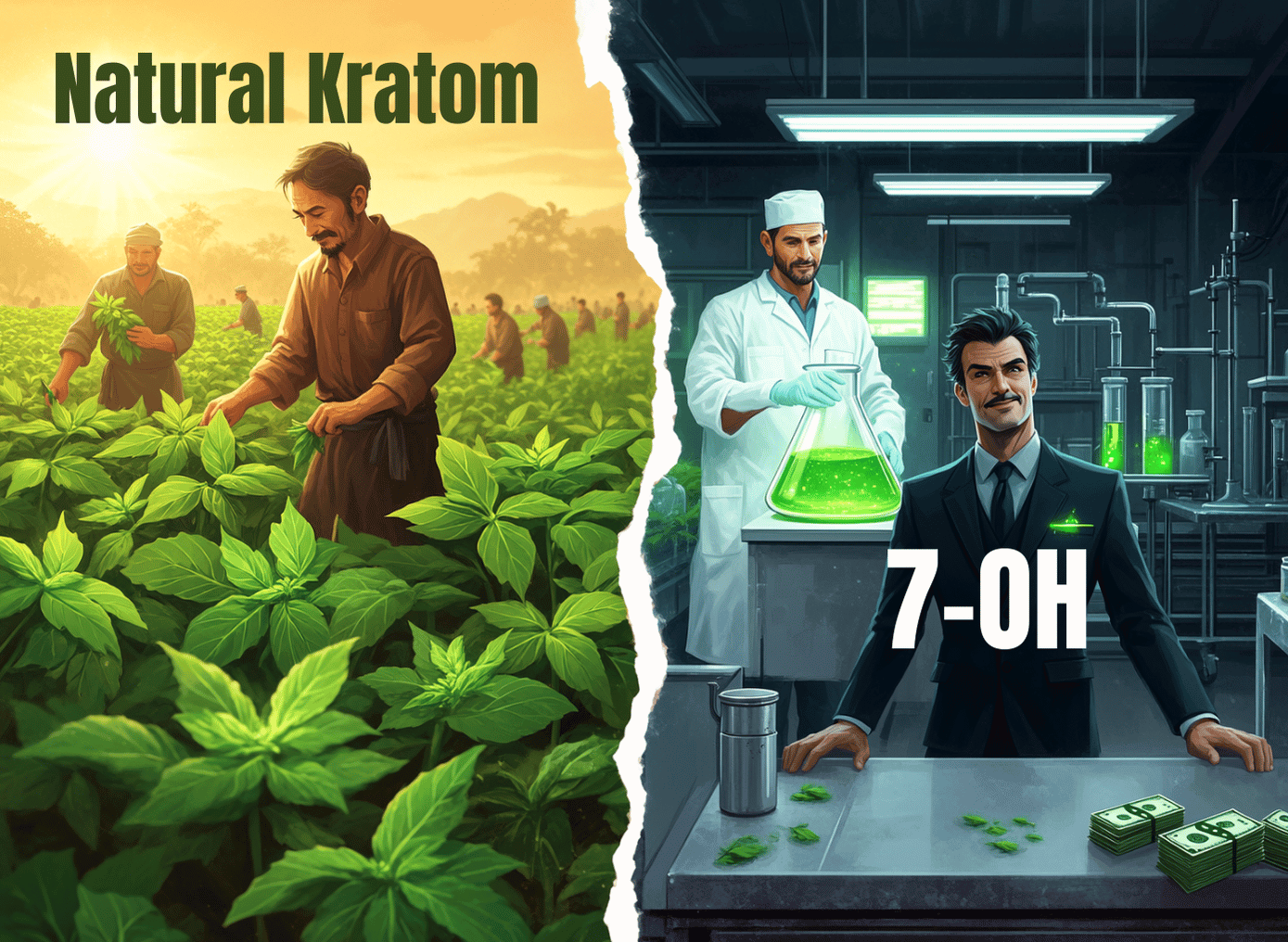RFK Jr. Moves to Ban Synthetic Kratom: What It Means for Natural Kratom Users
- Written by David
- Updated on July 29, 2025
- Published on
- Latest News
TL;DR
Recent federal actions led by Robert F. Kennedy Jr. target synthetic kratom products, specifically the potent 7-hydroxymitragynine (7-OH), while affirming that natural kratom leaf remains safe for use. This crackdown aims to protect consumers from misleadingly marketed synthetic products that mimic kratom but pose serious health risks. Natural kratom, cherished for generations as a gentle remedy, is distinct from these dangerous isolates.
Young kratom leaves (Mitragyna speciosa) sprouting in Southeast Asia. Indigenous communities have harvested and used kratom leaves for generations as a natural remedy. In its pure leaf form, kratom is a gentle, traditional plant medicine – a world apart from the new synthetic 7-OH products causing concern. If you’re a wellness seeker who uses kratom, you may have been alarmed (or perhaps relieved) by recent news about a federal crackdown on synthetic 7-hydroxymitragynine (7-OH). In this post, we’ll break down what was announced, why synthetic 7-OH is not kratom, and why sticking with natural kratom powder is the only respectful, responsible way to engage with this sacred plant. We write this from the heart, as both kratom advocates and an eco-conscious brand rooted in Indonesian tradition, to guide you through the facts and reaffirm our commitment to whole-plant, lab-tested, ethically sourced kratom.
Earlier this week, U.S. health officials took bold action against synthetic 7-OH products – while making clear that natural kratom leaf is not the target.fda.govfda.gov. In a July 29 press event, HHS Secretary Robert F. Kennedy Jr. and FDA Commissioner Dr. Marty Makary announced they will recommend classifying 7-hydroxymitragynine (7-OH) – a potent opioid-like compound derived from kratom – as a Schedule I controlled substance. This is the strictest category, reserved for drugs with no accepted medical use and high abuse potential. Importantly, officials stressed this recommendation “is specifically targeting 7-OH, a concentrated byproduct of the kratom plant,” and is “not focused on natural kratom leaf products.” In other words: your plain natural kratom powder is not what the FDA is after, but rather the chemically altered 7-OH extracts that have flooded the market in recent years.

Federal Officials Target Synthetic 7-OH, Not Natural Kratom
The announcement represents a coordinated federal response to “mislabeled, chemically altered products masquerading as kratom” that pose serious health risks. FDA research found that 7-OH can bind to opioid receptors even more strongly than morphine, causing sedation, respiratory depression, and addiction in ways natural kratom does not. FDA Commissioner Makary did not mince words: “7-OH is an opioid that can be more potent than morphine. We need regulation and public education to prevent another wave of the opioid epidemic.” Meanwhile, natural kratom’s primary alkaloid, mitragynine, is only a partial opioid receptor agonist with far lower abuse potential. The contrast in risk profile is stark.
The American Kratom Association (AKA) – a leading kratom advocacy group – applauded the federal move as a science-based step that “puts public safety first”. The AKA has long warned that these high-7-OH products are “not kratom” at all, but dangerous imposters”, and it praised Secretary Kennedy and Dr. Makary for drawing a clear line between the natural plant and synthetic manipulations. “These 7-OH products are not kratom. They are chemically altered substances with potent opioid-like effects that threaten consumers and tarnish the reputation of natural kratom,” said Mac Haddow of the AKA, celebrating the decision. The kratom community sees this as a critical milestone: eliminating rogue 7-OH products that endanger lives and give authentic kratom a bad name, while preserving access to safe, natural kratom for responsible adults. In the words of one botanical research group, “by clearly separating the natural botanical kratom from synthetic compounds like 7-OH…, federal agencies are addressing a major source of consumer confusion” and protecting a culturally significant plant.
Natural Kratom vs. Synthetic 7-OH: Understanding the Difference
To appreciate why regulators and advocates are united against 7-OH products, we need to understand how natural kratom differs from synthetic 7-OH. It’s truly a night-and-day distinction:
- 🌿 Source and Composition: Natural kratom powder (such as Maeng Da kratom or other strains) is simply the dried, ground leaves of the Mitragyna speciosa tree. It contains a broad spectrum of alkaloids, primarily mitragynine, and only trace amounts of 7-hydroxymitragynine produced naturally as the leaf ages. These trace 7-OH levels are physiologically insignificant. Synthetic 7-OH products, on the other hand, are made by chemically manipulating or concentrating 7-hydroxymitragynine outside of the plant’s natural context. Some manufacturers use industrial processes (oxidation, solvents, etc.) to boost 7-OH content to extreme levels or even create semi-synthetic analogs. The end result is a lab-derived 7-OH concentrate that simply does not occur in nature at those strengths.
- 💥 Effects and Risks: When used in modest amounts, pure natural kratom powder acts as a mild stimulant or relaxing analgesic, depending on dosage, with a relatively low potential for abuse and a ceiling on its opioid-like effects. Traditional kratom users don’t typically experience the respiratory failure that opioids cause, because mitragynine is a partial agonist and the plant contains balancing compounds. 7-OH extracts change that equation drastically. By isolating the most opioid-like component, these products deliver a high-potency opioid effect that far exceeds what whole kratom leaf can do. In fact, research shows 7-OH (in concentrated form) has an affinity for opioid receptors much stronger than morphine’s. This means a small bottle of “enhanced kratom shot” or a few 7-OH tablets can induce sedation and respiratory depression on par with powerful narcotics. The FDA has warned of overdose-like side effects from 7-OH, including severe nausea, slowed breathing, loss of consciousness, and addiction potential. In short, natural kratom and 7-OH extracts are completely different in their safety profile – the former is a gentle herb for most people, the latter is essentially a novel opioid drug.
- 🎭 Marketing and Mislabeling: A particularly insidious aspect of the 7-OH trend is how it’s marketed. These products are often sold as “kratom” – exploiting kratom’s name and reputation while providing something far more dangerous. You’ll find brightly packaged 7-OH shots, gummies, “high octane” capsules and strips at gas stations or online, frequently labeled with kratom strain names or leaves on the logo to appear natural. In reality, they are “enhanced” or synthetic concoctions with little in common with a cup of kratom tea. “Many are disguised or marketed as kratom,” warns the FDA, which noted that some even come in child-friendly forms like fruit-flavored gummies and candies. This deceptive branding misleads consumers into thinking they’re getting a super-potent form of kratom, when in truth they’re buying what one expert bluntly called “legal morphine at the gas station.” It’s a massive fraud that not only endangers users, but also distorts public understanding of kratom and fuels the efforts of those who seek to ban all kratom by conflating it with these spiked products.
- 🌍 Cultural and Ethical Context: Natural kratom has a rich heritage. For centuries, people in Southeast Asia (Indonesia, Malaysia, Thailand) have chewed fresh kratom leaves or brewed them in tea for energy, pain relief, and community rituals. This traditional use involves the whole leaf – all of the plant’s alkaloids working in concert, offering mild benefits and a built-in checks-and-balances on potency. No indigenous farmer ever brewed a 7-OH isolate in a lab; that practice is wholly modern and profit-driven. By concentrating a single compound to extreme levels, manufacturers are rejecting the wisdom of the plant and the culture that grew alongside it. The sacred balance of kratom’s chemistry and the sustainable, slow craft of harvesting leaves are tossed aside in favor of a quick buzz and quicker buck. This disrespect not only creates health dangers but also threatens to erode the cultural legacy of kratom. When 7-OH products cause hospitalizations or scandals, it reflects unfairly on the kratom tree that villagers have lovingly used responsibly for generations.
A packaged “kratom” gummies product containing high-dose 7-hydroxymitragynine. The FDA warns that such candy-like formats – often fruit-flavored and marketed as kratom gummies – are especially appealing to children and teens, and are sometimes deceptively sold as if they were natural kratom. These gummies (branded 7ΩHMZ, an “advanced kratom alkaloids” line) illustrate how far removed these spiked products are from actual kratom leaves. The package boasts 3.5 mg of 7-OH per gummy – a dose that may sound small but is pharmacologically potent – and 28 mg total per bag. By comparison, a teaspoon of good natural kratom powder might contain well under 10 mg of 7-OH in total, generated as the alkaloids metabolize. That’s the difference between chewing coca leaf vs. smoking crack, in a sense. The concern is not just theoretical: these 7-OH gummies and shots have led to adverse events, and regulators fear that if left unchecked, they could spark “another wave of the opioid crisis” hidden in plain sight. We firmly agree with scientists and ethical vendors: 7-OH concentrates are not kratom – they’re a dangerous imposter riding on kratom’s coattails.
Our Take: Only Natural Kratom Honors the Plant and the People
Let us state it plainly: Natural kratom is the only responsible and respectful way to engage with this plant medicine. At Bagus Botanicals, this belief guides everything we do. We refuse to even call those 7-OH concoctions “kratom,” because they’re not. Selling highly fortified 7-OH goo under the kratom name is an affront – to consumer safety, to the kratom plant, and to the Indonesian farmers who depend on kratom’s reputation. We’re relieved to see federal authorities and credible advocates taking a stand, because for too long, bad actors have gotten away with hawking these “boosted” products and putting lives at risk. As the AKA’s Mac Haddow put it: branding 7-OH products as ‘kratom’ while making outrageous health claims is a massive fraud on consumers that puts their safety directly at risk. It’s profit over people, plain and simple.
By contrast, pure kratom leaf (whether a classic green Maeng Da or a red Bali) is remarkably safe when used responsibly, and it offers real benefits: gentle stimulation, mood enhancement, relief from minor aches, or relaxation – without the peril of respiratory collapse. We stand with the scientific findings that kratom itself has a low potential for abuse and even potential harm-reduction uses (for example, helping some people reduce opioid use). Those benefits can only be realized if kratom remains unadulterated and respected. The moment people start chasing ever-stronger highs by chemifying kratom, we not only court danger, we hand ammunition to those who want kratom banned outright. Indeed, every 7-OH scare story becomes another talking point for banning all kratom – hurting the very people (perhaps you, the wellness user) who rely on safe, natural kratom for a better life. The stakes are high: public health and personal freedom. We will not allow a few greedy “extract chasers” to ruin a plant that is a lifeline and legacy for so many.
Empathetically but firmly, we assert: Bagus Botanicals has zero tolerance for synthetic kratom analogs. You will never find 45%-mitragynine extracts or 7-OH spiked shots in our catalog. Why? Because the kratom industry is no place for opportunists looking to make a quick buck at the expense of consumers. This community – our community – is about wellness, balance, and cultural respect, not getting wrecked on the latest ultra-shot. We believe kratom is a sacred gift of nature, not a laboratory carnival ride.
Bagus Botanicals: Guided by Tradition, Committed to Purity
As a premium kratom vendor with roots in Indonesia, Bagus Botanicals exists to be your guide in using kratom the right way. In the StoryBrand framework, you (the concerned wellness enthusiast) are the hero – and we are the guide who helps you navigate the problem (synthetic vs. natural) toward a solution. Our plan is simple: choose pure, whole-plant kratom every time. Bagus is here to ensure you can do exactly that with confidence.
Here’s how we uphold that plan and our values:
- Whole-Leaf, Nothing Added: We source unadulterated kratom leaf powder – rich in natural mitragynine and the dozens of other native compounds – and we keep it 100% pure. No “fortified alkaloids,” no secret additives, and certainly no synthesized 7-OH. When you buy kratom online from us, you’re getting exactly what nature provided: natural kratom powder that’s true to its strain (be it Maeng Da kratom, Borneo, Thai, etc.) and free of any tampering.
- Lab-Tested for Safety: Every batch of Bagus kratom undergoes rigorous third-party laboratory testing. We verify alkaloid content, screen for contaminants, and ensure there are no adulterants. This means you not only know it’s free of heavy metals or bacteria – you also know there isn’t a sneaky dose of fentanyl analog or synthetic 7-OH lurking (yes, that has happened in this unregulated market!). Our lab tests are our promise of integrity.
- Ethically Sourced & Sustainable: “Bagus” means good in Indonesian, and we strive to live up to that name. We partner directly with kratom farmers in Indonesia who use sustainable harvesting methods and honor the traditional practices of kratom use. By investing in these communities and paying fair prices, we help ensure that kratom remains a sustainable resource – not exploited or over-harvested. We are deeply aware that kratom is part of an ecosystem (both environmental and cultural), and we treat it with respect. This plant has been a part of indigenous culture for ages, and we feel a responsibility to preserve that heritage by doing business the right way.
- Education and Transparency: As your guide, we don’t just sell kratom – we also educate. We’re transparent about what kratom can and cannot do. We’ll be the first to tell a customer that kratom is not some get-high-quick drug or a cure-all for medical conditions. It’s an herb that, when treated with respect, can support well-being. Our website, blog (like this post), and customer support are dedicated to helping you make informed decisions. Knowledge is empowerment, especially in a market muddied by misinformation from both extremes.
In short, Bagus Botanicals’ mission is to ensure you have access to safe, natural kratom – the plant as it’s meant to be. We view ourselves as stewards of kratom’s reputation. Every time you open a Bagus pouch of green powder, we want you to feel the care that went into it: the farmers’ care, our care in testing and handling, and the care of centuries of tradition. That’s something no neon-colored 7-OH shot bottle could ever replicate.
Call to Action: Choose Nature and Help Protect Kratom’s Future
This moment in time – the move to ban synthetic 7-OH – is pivotal for kratom’s future in America. Your role is crucial. Here’s what we urge you to do, as a kratom consumer and advocate:
1. Vote with Your Wallet – Only Buy Natural Kratom. Whether you purchase from Bagus or another reputable source, insist on pure leaf products. Do not support companies selling “high-potency” 7-OH tinctures, mutant extracts, or anything that feels sketchy. By choosing natural kratom powder over chemically boosted alternatives, you send a powerful message that there’s no market for the imposters. Reputable vendors have plenty of potent natural kratom (for instance, a well-grown Maeng Da can pack a punch without needing enhancement). Stick to the real thing.
2. Educate Your Circle. Many people simply don’t know the difference between kratom and 7-OH products – and that’s dangerous. Spread the word: tell your friends, local shop owners, online forums, anyone who will listen, that “kratom” shots or gummies are wolves in sheep’s clothing. Share the science (like how 7-OH can be as strong as morphine. Explain how authentic kratom is a tea leaf, not a neon pill. The more consumers know, the less demand there will be for the bad stuff. Education is how we build a community of responsible kratom use, which in turn pressures businesses to do right.
3. Support Sensible Legislation and Advocacy. The fight isn’t over when 7-OH gets scheduled – we also need laws that protect your right to use natural kratom. All too often, headlines about “kratom overdoses” (usually involving adulterants) have led some states to ban kratom entirely. We must prevent reactionary bans that punish the wrong thing. Get involved with efforts like the Kratom Consumer Protection Act (KCPA) in your state, which ban adulterated products and set age limits and labeling requirements, rather than banning kratom itself. Celebrate victories like Rhode Island’s recent reversal of its kratom ban (the first state to do so) – proof that good policy can win. Consider supporting organizations like the American Kratom Association that work tirelessly with lawmakers to craft regulations that target the real bad actors (synthetic alterations, contaminant-laced products) while keeping pure kratom legal. Your voice – whether through signing petitions, contacting representatives, or donating – truly matters in this process.
At Bagus, we pledge to continue working alongside the AKA and other allies to ensure kratom stays available and safe. We’ve seen how one state’s success can influence others, and we’re committed to building on those wins. The scheduling of synthetic 7-OH is a huge step in clearing the weeds so the true kratom plant can thrive. Let’s keep that momentum.
The stakes could not be higher. On one hand, we have the health risks – people getting hurt or worse from mislabeled 7-OH opioids. On the other, we have the potential cultural loss – an ancient plant medicine demonized because of modern misdeeds and possibly outlawed, cutting off access for millions of responsible users and destroying livelihoods of Southeast Asian farmers. We simply must not let kratom’s story be written by the wrong people.
Instead, let’s write the story of kratom’s success: a future where a balanced, natural approach to wellness is respected; where kratom is regulated smartly like the herbal supplement it is, not banned out of misunderstanding. In that future, you continue to have the freedom to buy quality kratom online or in stores, and feel secure that it’s pure. You enjoy the benefits – be it relief from everyday stresses or a smoother road away from harsher substances – without stigma or fear. The traditional knowledge of indigenous communities remains honored, and their economic livelihood from kratom is preserved through fair, sustainable trade. That is the future Bagus Botanicals is fighting for.
And we invite you to join us in that fight. Choose nature over nonsense. Next time someone offers you a souped-up “kratom extract,” politely decline – and perhaps use it as a teachable moment. Share this article or your own words of wisdom. Each individual action scales up to a collective force for change.
In closing, we thank you – our customers, readers, and fellow kratom advocates – for caring about what goes into your body and where it comes from. Together, we have the power to elevate the industry’s standards and keep kratom’s legacy alive and well. Natural kratom is a gift – let’s protect it, cherish it, and pass it on intact to future generations. 🌿 Choose kratom, not chemicals. Choose people over profit. Choose Bagus – where purity and tradition always prevail.
Empowered by knowledge, united in purpose, we will ensure kratom’s story continues as one of wellness, wisdom, and respect.
Sources
- American Kratom Association. (2025, July 29). Email Announcement on 7-OH Scheduling Recommendation.
- U.S. Food & Drug Administration. (2025, July 29). Hiding in Plain Sight: 7-OH Products.
- Haddow, M. (2025). American Kratom Association Public Statement.
- Botanical Education Alliance. (2025). Kratom Safety & 7-OH Risks Report.
- Kennedy Jr., R. F., & Makary, M. (2025, July). Press Event on Synthetic 7-OH Classification.
- Kruegel, A. C., et al. (2016). Pharmacological properties of mitragynine and 7-hydroxymitragynine. Journal of Medicinal Chemistry.




